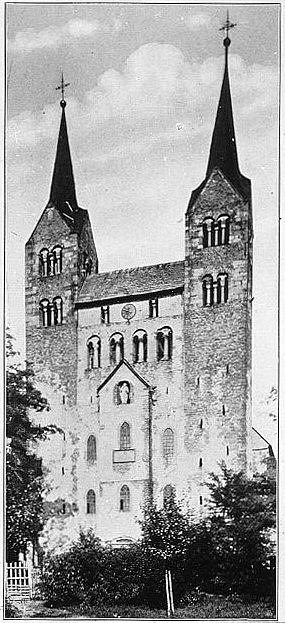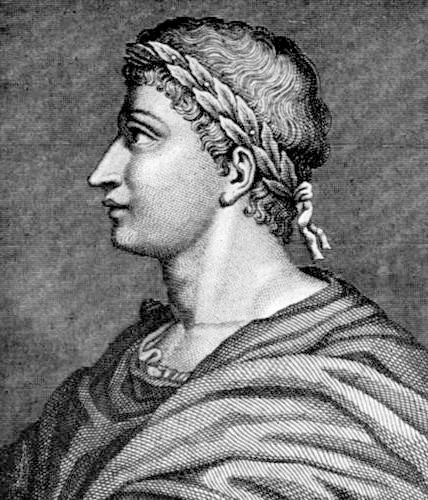|
Amathusia
Amathusia or Amathuntia ( or ) was in Greek mythology a toponymic epithet of the goddess Aphrodite, which is derived from the city of Amathus in Cyprus, one of the most ancient seats of her worship. Her temple there remained famous in Roman times.Catullus Gaius Valerius Catullus (; ), known as Catullus (), was a Latin neoteric poet of the late Roman Republic. His surviving works remain widely read due to their popularity as teaching tools and because of their personal or sexual themes. Life ..., lxviii. 51 Notes References Epithets of Aphrodite {{Greek-deity-stub ... [...More Info...] [...Related Items...] OR: [Wikipedia] [Google] [Baidu] |
Amathus
Amathus or Amathous () was an ancient city and one of the ancient royal cities of Cyprus until about 300 BC. Some of its remains can be seen today on the southern coast in front of Agios Tychonas, about east of Limassol and west of Larnaca. Its ancient cult sanctuary of Aphrodite was the second most important in Cyprus, her homeland, after Paphos. Archaeological work has recently been continued at the site and many finds are exhibited in the Limassol Museum. History Pre-history and ancient era The pre-history of Amathus survives in both myth and archaeology. No traces of human activity was detected in the site before the earliest Iron Age, BC, and no town is mentioned in the space between Kition and Kourion in the list of Cypriot cities from Medinet Habu. The city's legendary founder was Cinyras, linked with the birth of Adonis, who called the city after his mother Amathous.Stephanus of Byzantium, s.v. Amathous' According to a version of the Ariadne legend noted by Pluta ... [...More Info...] [...Related Items...] OR: [Wikipedia] [Google] [Baidu] |
Greek Mythology
Greek mythology is the body of myths originally told by the Ancient Greece, ancient Greeks, and a genre of ancient Greek folklore, today absorbed alongside Roman mythology into the broader designation of classical mythology. These stories concern the ancient Greek religion's view of the Cosmogony, origin and Cosmology#Metaphysical cosmology, nature of the world; the lives and activities of List of Greek deities, deities, Greek hero cult, heroes, and List of Greek mythological creatures, mythological creatures; and the origins and significance of the ancient Greeks' cult (religious practice), cult and ritual practices. Modern scholars study the myths to shed light on the religious and political institutions of ancient Greece, and to better understand the nature of mythmaking itself. The Greek myths were initially propagated in an oral tradition, oral-poetic tradition most likely by Minoan civilization, Minoan and Mycenaean Greece, Mycenaean singers starting in the 18th century&n ... [...More Info...] [...Related Items...] OR: [Wikipedia] [Google] [Baidu] |
Toponym
Toponymy, toponymics, or toponomastics is the study of ''wikt:toponym, toponyms'' (proper names of places, also known as place names and geographic names), including their origins, meanings, usage, and types. ''Toponym'' is the general term for a proper name of any geographical feature, and full scope of the term also includes proper names of all cosmographical features. In a more specific sense, the term ''toponymy'' refers to an inventory of toponyms, while the discipline researching such names is referred to as ''toponymics'' or ''toponomastics''. Toponymy is a branch of onomastics, the study of proper names of all kinds. A person who studies toponymy is called ''toponymist''. Etymology The term ''toponymy'' comes from / , 'place', and / , 'name'. The ''Oxford English Dictionary'' records ''toponymy'' (meaning "place name") first appearing in English in 1876 in the context of geographical studies. Since then, ''toponym'' has come to replace the term ''place-name'' in profe ... [...More Info...] [...Related Items...] OR: [Wikipedia] [Google] [Baidu] |
Aphrodite
Aphrodite (, ) is an Greek mythology, ancient Greek goddess associated with love, lust, beauty, pleasure, passion, procreation, and as her syncretism, syncretised Roman counterpart , desire, Sexual intercourse, sex, fertility, prosperity, and victory. Aphrodite's major symbols include seashells, Myrtle (common), myrtles, roses, doves, sparrows, and swans. The cult of Aphrodite was largely derived from that of the Ancient Canaanite religion, Phoenician goddess Astarte, a cognate of the East Semitic goddess Ishtar, whose cult was based on the Sumerian religion, Sumerian cult of Inanna. Aphrodite's main cult centers were Kythira, Cythera, Cyprus, Corinth, and Athens. Her main festival was the Aphrodisia, which was celebrated annually in midsummer. In Laconia, Aphrodite was worshipped as a warrior goddess. She was also the patron goddess of Prostitution in ancient Greece, prostitutes, an association which led early scholars to propose the concept of sacred prostitution in Greco-Rom ... [...More Info...] [...Related Items...] OR: [Wikipedia] [Google] [Baidu] |
Cyprus
Cyprus (), officially the Republic of Cyprus, is an island country in the eastern Mediterranean Sea. Situated in West Asia, its cultural identity and geopolitical orientation are overwhelmingly Southeast European. Cyprus is the List of islands in the Mediterranean, third largest and third most populous island in the Mediterranean, after Sicily and Sardinia. It is located southeast of Greece, south of Turkey, west of Syria and Lebanon, northwest of Israel and Palestine, and north of Egypt. Its capital and largest city is Nicosia. Cyprus hosts the British Overseas Territories, British military bases Akrotiri and Dhekelia, whilst the northeast portion of the island is ''de facto'' governed by the self-declared Northern Cyprus, Turkish Republic of Northern Cyprus, which is separated from the Republic of Cyprus by the United Nations Buffer Zone in Cyprus, United Nations Buffer Zone. Cyprus was first settled by hunter-gatherers around 13,000 years ago, with farming communities em ... [...More Info...] [...Related Items...] OR: [Wikipedia] [Google] [Baidu] |
Roman Empire
The Roman Empire ruled the Mediterranean and much of Europe, Western Asia and North Africa. The Roman people, Romans conquered most of this during the Roman Republic, Republic, and it was ruled by emperors following Octavian's assumption of effective sole rule in 27 BC. The Western Roman Empire, western empire collapsed in 476 AD, but the Byzantine Empire, eastern empire lasted until the fall of Constantinople in 1453. By 100 BC, the city of Rome had expanded its rule from the Italian peninsula to most of the Mediterranean Sea, Mediterranean and beyond. However, it was severely destabilised by List of Roman civil wars and revolts, civil wars and political conflicts, which culminated in the Wars of Augustus, victory of Octavian over Mark Antony and Cleopatra at the Battle of Actium in 31 BC, and the subsequent conquest of the Ptolemaic Kingdom in Egypt. In 27 BC, the Roman Senate granted Octavian overarching military power () and the new title of ''Augustus (title), Augustus'' ... [...More Info...] [...Related Items...] OR: [Wikipedia] [Google] [Baidu] |
Tacitus
Publius Cornelius Tacitus, known simply as Tacitus ( , ; – ), was a Roman historian and politician. Tacitus is widely regarded as one of the greatest Roman historians by modern scholars. Tacitus’ two major historical works, ''Annals'' (Latin: ) and the ''Histories'' (Latin: ), originally formed a continuous narrative of the Roman Empire from the death of Augustus (14 AD) to the end of Domitian’s reign (96 AD). The surviving portions of the Annals focus on the reigns of Tiberius, Claudius, Nero, and those who reigned in the Year of the Four Emperors (69 AD). Tacitus's other writings discuss oratory (in dialogue format, see ), Germania (in ''De origine et situ Germanorum''), and the life of his father-in-law, Agricola (the general responsible for much of the Roman conquest of Britain), mainly focusing on his campaign in Britannia ('' De vita et moribus Iulii Agricolae''). Tacitus's ''Histories'' offers insights into Roman attitudes towards Jews, ... [...More Info...] [...Related Items...] OR: [Wikipedia] [Google] [Baidu] |
Annals (Tacitus)
The ''Annals'' () by Roman historian and senator Tacitus is a history of the Roman Empire from the reign of Tiberius to that of Nero, the years AD 14–68. The ''Annals'' are an important source for modern understanding of the history of the Roman Empire during the 1st century AD. Tacitus' final work, modern historians generally consider it his magnum opus which historian Ronald Mellor says represents the "pinnacle of Roman historical writing". Tacitus' ''Histories'' and ''Annals'' together amounted to 30 books, although some scholars disagree about which work to assign some books to, traditionally 14 are assigned to ''Histories'' and 16 to ''Annals''. Of the 30 books referred to by Jerome about half have survived. Modern scholars believe that as a Roman senator, Tacitus had access to '' Acta Senatus''—the Roman senate's records—which provided a solid basis for his work. Although Tacitus refers to part of his work as "my annals", the title of the work ''Annals'' used tod ... [...More Info...] [...Related Items...] OR: [Wikipedia] [Google] [Baidu] |
Ovid
Publius Ovidius Naso (; 20 March 43 BC – AD 17/18), known in English as Ovid ( ), was a Augustan literature (ancient Rome), Roman poet who lived during the reign of Augustus. He was a younger contemporary of Virgil and Horace, with whom he is often ranked as one of the three Western canon, canonical poets of Latin literature. The Roman Empire, Imperial scholar Quintilian considered him the last of the Latin love elegy, elegists.Quint. ''Inst.'' 10.1.93 Although Ovid enjoyed enormous popularity during his lifetime, the emperor Augustus Exile of Ovid, exiled him to Constanța, Tomis, the capital of the newly-organised province of Moesia, on the Black Sea, where he remained for the last nine or ten years of his life. Ovid himself attributed his banishment to a "poem and a mistake", but his reluctance to disclose specifics has resulted in much speculation among scholars. Ovid is most famous for the ''Metamorphoses'', a continuous mythological narrative in fifteen books written in ... [...More Info...] [...Related Items...] OR: [Wikipedia] [Google] [Baidu] |
Amores (Ovid)
''Amores'' (, ) is Ovid's first completed book of poetry, written in elegiac couplets. It was first published in 16 BC in five books, but Ovid, by his own account, later edited it down into the three-book edition that survives today. The book follows the popular model of the erotic elegy, as made famous by figures such as Tibullus or Propertius, but is often subversive and humorous with these tropes, exaggerating common motifs and devices to the point of absurdity. While several literary scholars have called the ''Amores'' a major contribution to Latin love elegy, they are not generally considered among Ovid's finest works and "are most often dealt with summarily in a prologue to a fuller discussion of one of the other works". History Ovid was born in 43 BCE and grew up in Sulmo, a small town in the mountainous Abruzzo. Based on the memoirs of Seneca the Elder, scholars know that Ovid attended school in his youth. During the Augustan Era, boys attended schools that focused ... [...More Info...] [...Related Items...] OR: [Wikipedia] [Google] [Baidu] |
Virgil
Publius Vergilius Maro (; 15 October 70 BC21 September 19 BC), usually called Virgil or Vergil ( ) in English, was an ancient Rome, ancient Roman poet of the Augustan literature (ancient Rome), Augustan period. He composed three of the most famous poems in Latin literature: the ''Eclogues'' (or ''Bucolics''), the ''Georgics'', and the Epic poetry, epic ''Aeneid''. A number of minor poems, collected in the ''Appendix Vergiliana'', were attributed to him in ancient times, but modern scholars generally regard these works as spurious, with the possible exception of a few short pieces. Already acclaimed in his own lifetime as a classic author, Virgil rapidly replaced Ennius and other earlier authors as a standard school text, and stood as the most popular Latin poet through late antiquity, the Middle Ages, and early modernity, exerting inestimable influence on all subsequent Western literature. Geoffrey Chaucer assigned Virgil a uniquely prominent position among all the celebrities ... [...More Info...] [...Related Items...] OR: [Wikipedia] [Google] [Baidu] |
Catullus
Gaius Valerius Catullus (; ), known as Catullus (), was a Latin neoteric poet of the late Roman Republic. His surviving works remain widely read due to their popularity as teaching tools and because of their personal or sexual themes. Life Gāius Valerius Catullus was born to a leading equestrian family of Verona, in Cisalpine Gaul. The social prominence of the Catullus family allowed the father of Gaius Valerius to entertain Julius Caesar when he was the Promagistrate (proconsul) of both Gallic provinces. In a poem, Catullus describes his happy homecoming to the family villa at Sirmio, on Lake Garda, near Verona; he also owned a villa near the resort of Tibur (modern Tivoli). Catullus appears to have spent most of his young adult years in Rome. His friends there included the poets Licinius Calvus and Helvius Cinna, Quintus Hortensius (son of the orator and rival of Cicero), and the biographer Cornelius Nepos, to whom Catullus dedicated a '' libellus'' of poems, the ... [...More Info...] [...Related Items...] OR: [Wikipedia] [Google] [Baidu] |








